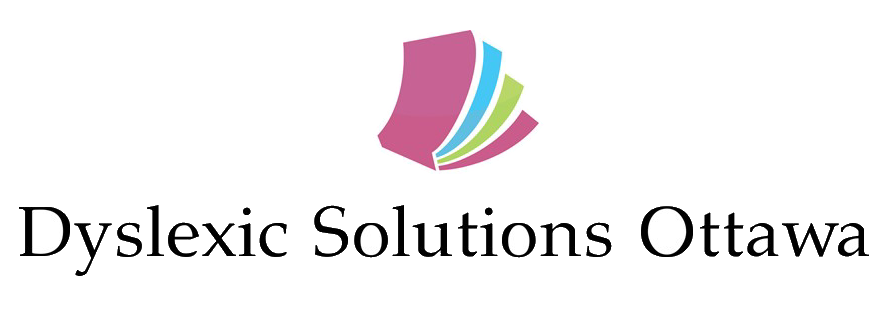
Signs & Symptoms
Where Does Dyslexia Originate?
Dyslexia is an inherited condition, therefore, the biggest predictor is a parent or sibling with reading problems, and a child who experiences difficulty acquiring reading skills after one to two years of schooling. The process of learning to read for children with dyslexia is often extremely slow, and benchmarks are notably delayed. Over 10% of individuals with dyslexia also have ADHD (Shaywitz, 2003).
Learning Benchmarks
Below is a guide, outlining the stages of learning/writing/reading, and what to look for in terms of possible red flags in typical reading progress. Exhibiting one or two of these symptoms occasionally does not necessarily mean that dyslexia, or a language-based learning disability, is present. Should your child display these symptoms on a frequent and ongoing basis, further study and analysis may be recommended.
Toddlers/Preschoolers:
✓ Delayed speech*
✓ Difficulty in rhyming words
✓ Difficulty in learning common nursery rhymes (e.g., “Humpty Dumpty”)
✓ Difficulty in learning names of letters
✓ Doesn’t know the letters in his or her own name
✓ Chronic ear infections
*Typically, a child will say his or her first words by one year, and be saying simple sentences by 18 months to two years (Shaywitz, 2003).
Kindergarten:
✓ Difficulty in learning names of letters
✓ Difficulty associating letters with their particular sounds
✓ Difficulty in rhyming words
✓ Avoids reading, or complains that reading is difficult
✓ Difficulty in pronouncing longer words* (e.g., reversing sounds in words, such as “pisghetti” for spaghetti)
✓ Trouble in memorizing home address and phone number
✓ Difficulty in learning to tie shoes
✓ Delay in establishing a dominant hand
*At 5-6 years of age, children should have little difficulty pronouncing most words correctly (Shaywitz, 2003).
Grade one:
✓ Inability to sound out simple, grade level words
✓ Difficulty in pronouncing words
✓ Difficulty in retrieving words (e.g., frequent use of “ummm” in speech, reflecting a difficulty in being able to access the proper word in mind)
✓ Difficulty in associating letters to sounds
✓ Difficulty in identifying beginning, medial, and ending sounds in words*
*A child who cannot separate sounds in words after a year of reading instruction will likely experience reading difficulties later on. Reading performance in first grade is a strong predictor of reading achievement in later grades (Shaywitz, 2003).
Later Elementary Grades:
✓ Poor spelling skills
✓ Guesses at words based on shape and size (e.g., reading “house” for horse, or “was” for saw)
✓ Uses context or picture cues to guess at the meaning of words (e.g., reading “pony” for horse, or “car” for automobile)
✓ Hesitant, slow, or choppy reading that lacks fluidity (e.g., omissions, substitutions, or mispronunciations of words)
✓ Difficulty in sounding out unknown words
✓ Avoids reading aloud; does not enjoy reading
✓ Difficulty reading small function words (e.g., is, at, that, for)
✓ Letter reversals that persist past age 7 (e.g., confusion with b-d, m-w)
✓ Dysgraphia (very poor handwriting skills)
✓ Difficulty in retrieving words while speaking
✓ Confuses words that sound alike (e.g., calling an escalator a calculator)
✓ Poor performance on multiple choice tests
✓ Requires extra time to finish tests or homework
✓ Difficulty in learning a foreign language
✓ Does not enjoy reading
✓ Hates school, exhibits avoidance behaviours
✓ Acts out in class
✓ Has low self esteem
Adolescence and Adulthood:
✓ Childhood history of reading and spelling problems
✓ Weak reading comprehension skills
✓ Slow reader (exhibits extreme fatigue from reading)
✓ Requires a quiet room to read, because reading continues to demand a significant amount of effort and concentration
✓ Significant time spent completing writing assignments
✓ Poor written expression
✓ Difficulty in learning a foreign language
✓ Trips over parts of words when speaking
✓ Difficulty in remembering names of people and places (confuses names that sound alike)
✓ Difficulty in retrieving words
✓ Mispronunciation of unfamiliar, uncommon, or unusual names or words
✓ Not interested in reading for pleasure
✓ Terrible spelling skills
✓ Reads accurately, but lacks fluidity
✓ Still experiences difficulty with left versus right differentiation

Dyslexia is associated with many gifts! Individuals may demonstrate strengths in one or more of the following areas:
✓ High learning ability
✓ Athletic
✓ Creative
✓ Artistic
✓ Articulate when expressing ideas and feelings.
✓ Empathetic and warm toward others
✓ Big picture, “out of the box” thinkers
✓ Resilient
✓ Great imagination
✓ Unexpected maturity for age
✓ Large vocabulary for age
✓ Talented at solving puzzles and/or building models.
✓ Excellent listening comprehension
✓ High ability in areas no dependent on rote memory
✓ High ability in areas not dependent on reading (e.g., arts, math, philosophy, computers, biology)
✓ Strengths in higher level thinking skills (e.g., understanding new concepts, reasoning, abstract thinking)
What to Do
Please note that the occurrence of one or two rarely occurring symptoms does not warrant a diagnosis of dyslexia. Look for symptoms that are persistent and frequent.
If you or your child exhibit numerous and frequent symptoms and are concerned, feel free to contact us about a referral to an educational psychologist for accurate screening and diagnosis. Early detection is vital to future success in reading development.
If you or your child has been diagnosed with Dyslexia, we are qualified to administer a proven tutoring program. The Barton Reading and Spelling System is an intensive and highly effective method of teaching that has resulted in success for numerous students under our instruction.









